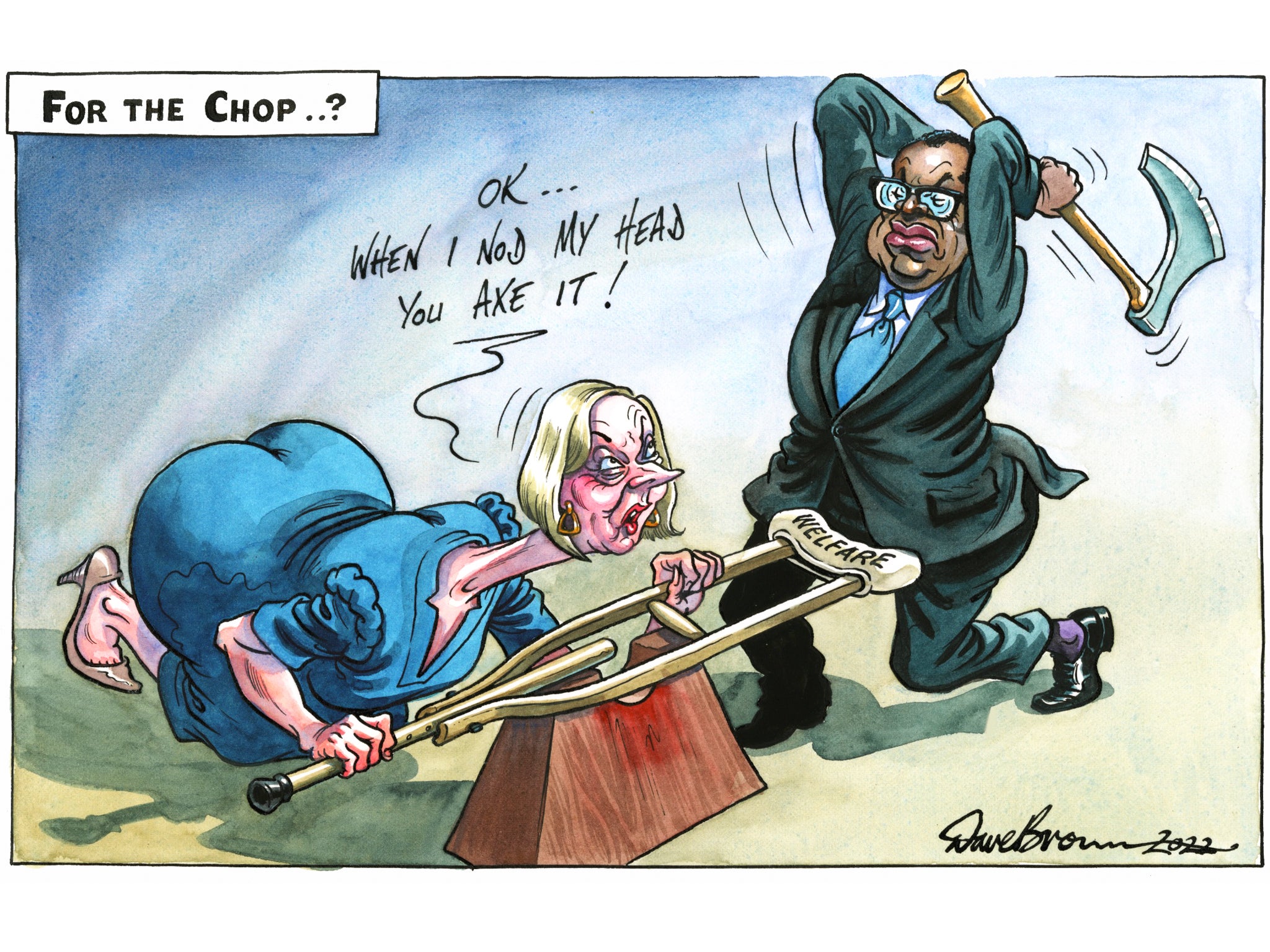Had things been just a little different during the Tory leadership campaign, it might well be Penny Mordaunt swanning around Birmingham as prime minister, and Liz Truss her awkward colleague in cabinet.
There was a nasty rumour, never verified but plausible, that the Rishi Sunak campaign strategically “lent” some of its supporters to Ms Truss, in the belief that Ms Truss was unelectable and much easier to beat than Ms Mordaunt in the final round of the contest involving party members. That was only half-right, as the country and the party now know to their cost.
After Ms Truss became leader, Ms Mordaunt, as lively and original as Ms Truss is wooden and predictable, was rewarded for her third place in the leadership election with the relatively lowly post of leader of the House of Commons, rather than a great office of state. Ms Mordaunt could be forgiven for wondering how things might have been in recent weeks if she’d been entrusted with the Treasury, rather than the overconfident and underprepared Kwasi Kwarteng. On the conference fringe, she pointed out that her government’s policies were fine, but not so much the “comms”. Now, it seems, she’s not so sure about policy.
So there’s some history behind Ms Mordaunt’s plea to protect those on benefits from the cost of living crisis. In any case, it is greatly to Ms Mordaunt’s credit that she has broken with collective cabinet responsibility and spoken out about what is now being openly discussed by her colleagues.
Pensioners, a reliable source of Tory votes, are being reassured that the “triple lock” that ensures their incomes go up at least in line with prices and earnings is being restored, and at considerable cost. If the government betrayed the elderly, its vote share would be in single figures at the next general election. People on universal credit are not so electorally valuable. They include those with disabilities, long-term illness, in low-paid work and so on, and are not to be treated so generously.
The argument is made, by Ms Truss, that older citizens are less able to work or work harder, which is broadly true. It justifies their preferential treatment, and many will feel that is fair – pensions were neglected for three decades after the earnings link was broken by the Conservatives in 1980, with a long-term rise in pension poverty.
But why set one group of people against another? Many of those on universal credit are in work, and the benefit helps them to survive and stay in work – it makes work pay by removing the poverty and income traps, and means taking a poorly paid or part-time job makes financial sense. Many work part-time purely because of their personal circumstances; they may not be in the best of health, they may be lone parents or carers. Some people with disabilities are locked out of the labour market, even now, by foolish employers unable to see the potential of a whole person.
There is, in other words, an unpleasant and false assumption in some circles that everyone on universal credit is lazy, and their problems would be solved if only they worked harder or got a better job. Indeed, such callous sentiments were recently voiced by the chair of the Conservative Party, Jake Berry.
The only commitment made by the chancellor is simply that he will protect “the most vulnerable”, which has no meaning. What it ought not to mean is some token pot of funds, say £1bn, that will be doled out to local authorities to distribute according to their judgement to the destitute, like latter-day Poor Law guardians. It seems to be what’s coming. Chloe Smith, the new work and pensions secretary, has an unfortunate track record of being humiliated in TV interviews; she lacks the authority and heft in the party to defend universal credit claimants, even if she wanted to.
To keep up to speed with all the latest opinions and comment, sign up to our free weekly Voices Dispatches newsletter by clicking here
Ms Mordaunt wants her party to be better than that, and does not want to push people into destitution. Nor do others. She has much support on the back benches for that view. It’s becoming increasingly apparent that the government will lose any vote on the Commons that pushes more people into poverty, and Ms Mordaunt is in an excellent position to lead the internal opposition, as Michael Gove and Grant Shapps are agitating from outside. Effectively, the UK has now got another hung parliament, and Ms Truss lacks the gifts to either end or make the best of this unfortunate turn of events.
The prime minister, if she was as tough as she makes out, would sack Ms Mordaunt and remove the whip from the likes of Mr Gove for their open disloyalty. But Ms Truss is made of weaker stuff than her fans thought, and at present, to borrow her favourite word, is “delivering” a policy U-turn every day. She is apparently unable even to express a formal declaration of confidence in her own chancellor.
Maybe the prime minister is having second thoughts about giving her old friend Mr Kwarteng such a crucial role. There are others around the cabinet table, including Ms Mordaunt, who have a more acute sense of public opinion, and who would therefore do a better job. They can’t go on like this.







Join our commenting forum
Join thought-provoking conversations, follow other Independent readers and see their replies
Comments